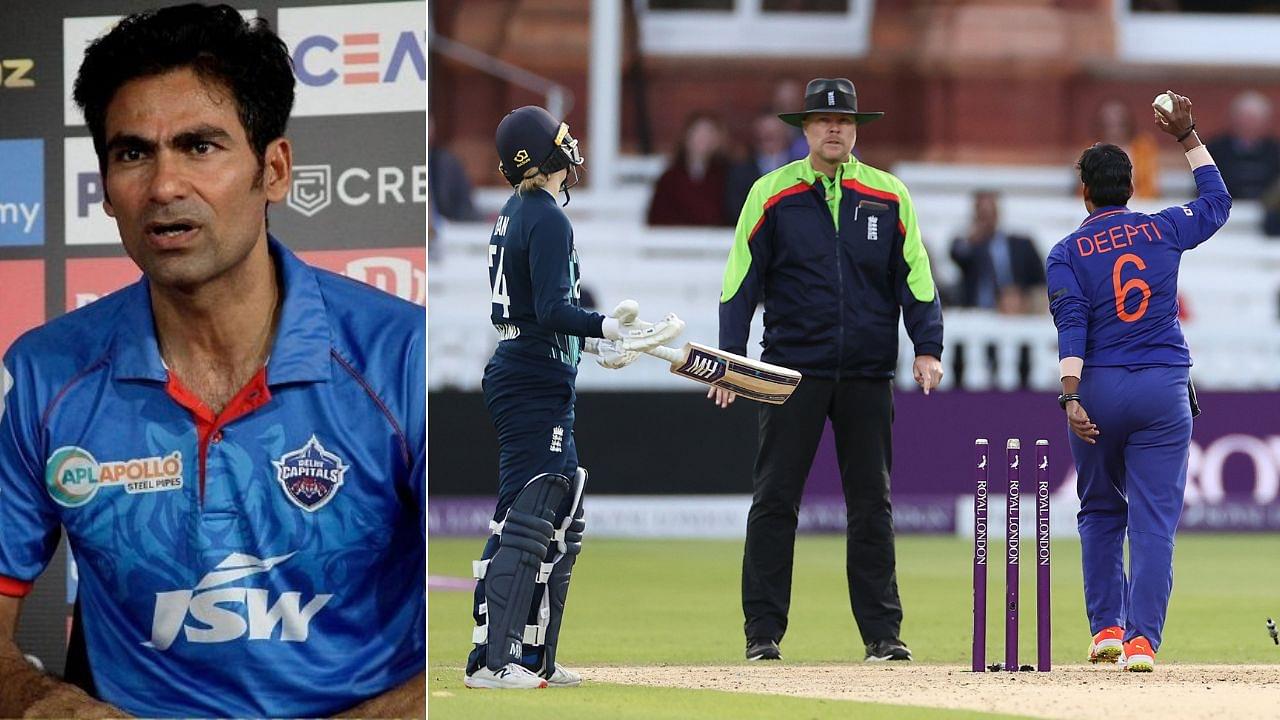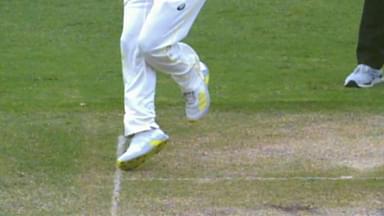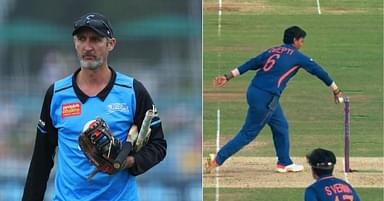Mohammad Kaif adds contrasting view to Mankading debate: The former Indian batter believes not releasing a ball is unfair on batters.
Advertisement
India all-rounder Deepti Sharma wouldn’t have thought that her running out England all-rounder Charlie Dean in the recently concluded third WODI at Lord’s would be perceived as an unlawful or illegal move.
Last English batter to be dismissed with the team still needing 17 runs to win the match and avoid a 0-3 whitewash, Dean’s dismissal not only became a decisive moment but also acted as a trigger point for a lot of distasteful reactions across social media platforms from notable personalities (mostly belonging to England).
A section of the cricketing fraternity was opposed to the dismissal considering it to be against the “Spirit of the Game”. While spirit, despite being a highly subjective term, of anything should be given the highest prominence, it shouldn’t come at the cost of speaking against rules which are written primarily to be followed.
Mohammad Kaif adds contrasting view to Mankading debate stating batters mentally programmed to take start
A bit late to react though, former India captain Mohammad Kaif has put forward a contrasting opinion to the debate around Mankading.
First things first, a new update to the ICC (International Cricket Council) rules set to be brought into effect from October 1 will rule against using the term “Mankading”. Instead, such a form of dismissal will simply be referred to a run-out and wouldn’t even be counted under “unfair means”.
Kaif, 41, pointed out how batters at the non-striker’s end always prepare themselves for taking a start. Mentally programmed to focus on the striker and not if the bowler has released the ball or not, Kaif considered a bowler not releasing a ball (in Deepti Sharma’s case from last night) as unfair on batters.
Every batter times his/her start when they are at non-striker end. After years of playing they are mentally programmed when the ball will be released as they are focusing on striker. If a bowler doesn’t release the ball it’s unfair on batter.
— Mohammad Kaif (@MohammadKaif) September 25, 2022
While Kaif is right that batters focus on taking a start, any type or extent of mental programming shouldn’t allow anyone an undue advantage. In such type of cases, batters mostly find themselves at the receiving end of an advantage irrespective of their intention. Hence, no amount of justification can justify batters leaving the crease early.
Can there be a solution for Mankading debate?
Yes. First of all, stop calling a run-out at the non-striker’s end as Mankading.
Secondly, a possible solution could be for ICC to simply edit the existing rule. “If the non-striker is out of his/her ground at any time from the moment the ball comes into play until the instant when the bowler would normally have been expected to release the ball, the non-striker is liable to be Run out,” states Law 41.16.1 of the MCC rule book.
The term “from the moment the ball comes into play” is in itself open to debate and has it in it to be perceived differently by people. More elaboration to this particular line in this particular rule could make lives easier for everyone by minimizing perceptions and avoid unnecessary debates.
For example, ICC could define as to when the ball “comes into play”. Is it when a bowler starts running or when a ball is released from a bowler’s hand? Providing a simple clarity to an existing rule would also aid bowlers in keeping away from stigmatization.
As far as the batters are concerned, it is high time that they stop looking shocked after such dismissals. Furthermore, working around outdated mental programmings would also be of great help.
UPDATE: MCC has amended the law to provide better clarity around the above mentioned term “bowler would normally have been expected to release the ball”. Removing ambiguity around its exact meaning, everyone is advised to interpret it as “the highest point in that bowler’s action”.







